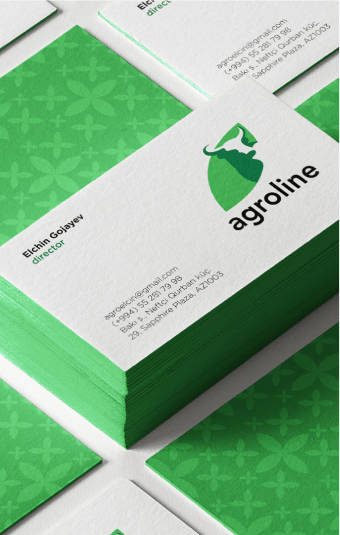Are you a new website owner who is looking to optimize your online presence? If so, then understanding the basics of SEO (search engine optimization) and implementing best practices on your website is crucial. Whether you are just launching your first business venture or revamping an existing site, utilizing SEO correctly can have a tremendous impact on your long-term success. In this blog post, we’ll show you exactly how to get started with SEO for new websites—including key tips for developing effective content strategies, leveraging keyword research tactics, and more! Keep reading to learn all about optimizing your site for search engines in 2023.
Thorough Keyword Research
To ensure your online presence is as effective as possible, conducting thorough keyword research is an essential first step. By taking the time to thoroughly investigate and find the right keywords and phrases, you can maximize the reach and visibility of your content, products, or services. This can go a long way in driving traffic to your website, raising your brand’s profile, and ultimately, generating more leads. Whether you’re a small local business or a large international corporation, keyword research is an indispensable tool that can help you achieve your online goals. So, make sure you dive deep and consider all of the relevant keywords that pertain to your business, and get ready to see increased online success.
Create Engaging Content
Creating engaging content for your website is a crucial aspect of any successful online presence. Not only does it provide valuable information to your readers, but it also helps to keep them interested and coming back for more. One important way to achieve this is by including plenty of internal links throughout your content. Not only does this improve your SEO, but it also encourages readers to explore your website and learn more about your business or brand. So, take the time to craft informative and engaging content, and don’t forget to pepper in those important internal links to keep your readers engaged!
Optimize Images
When it comes to SEO, images can play a crucial role in driving traffic to your website. However, simply uploading a bunch of images and calling it a day is not enough. To truly optimize your images, it’s important to add relevant Alt text and captions. Alt text is a short description of what the image is portraying and helps search engines understand the context of your image. Captions, on the other hand, provide additional information and can help keep visitors engaged with your content. By taking the time to add these important elements, you can improve your website’s search rankings and attract more visitors.
Use Headings with Keywords
If you’re looking to improve your website’s SEO, using proper headings is a simple yet effective way to do so. By breaking up your content into manageable chunks with H1, H2, and H3 headings, not only will your readers be able to scan your content more easily, but search engines will also be able to better understand what your content is about. This is because search engines rely heavily on headings to determine the main topics and sections of your website. So, whether you’re a blogger or a business owner, taking the time to use headings with keywords can go a long way in boosting your website’s visibility and search engine rankings.
Use Simple URLs
When search engines crawl through your website, the URL is one of the most important elements they look at to determine the relevance of your webpage. A clear and concise URL not only helps search engines understand your content but also makes it easier for users to read and remember. A well-optimized URL includes the primary keyword relevant to the content and enhances the chances of it showing up in search engine results pages (SERPs). Therefore, it’s essential to create URLs that are easy to understand and relevant to the content of your website.
Meta Descriptions
A meta description is a short summary of your webpage that appears in search results, giving people a glimpse into what they can expect to find on your site. Including a meta description on all pages of your website is a simple yet effective way to boost your search engine rankings and attract more organic traffic. By crafting compelling, concise descriptions that accurately reflect the content of each page, you can entice users to click through to your site and increase your chances of converting them into loyal customers. So if you haven’t already, it’s time to start using meta descriptions across your entire website and take your SEO game to the next level.
Site Structure
When it comes to optimizing your website for search engines, site structure plays a crucial role. An intuitive and well-organized structure ensures that search engine crawlers can easily access and index all the pages on your site. This, in turn, can significantly improve your SEO performance and help your site rank higher in search engine results pages. A good site structure should include a clear and concise hierarchy of pages, internal linking, and proper URL structure. By paying attention to these details and taking the time to create a comprehensive site structure, you can give your website the best possible chance to rank well in search engines and attract more traffic to your site. Overall, a thoughtful approach to site structure can pay significant dividends when it comes to SEO and online visibility.
Internal Linking
Internal linking between pages of your website may seem like a small detail, but it can have a significant impact on your website’s user experience and search engine optimization (SEO) ranking. By linking relevant content between pages, visitors can easily navigate your site and find the information they need. This can improve user engagement and reduce bounce rates, which can ultimately lead to higher conversions. Additionally, internal links can help search engines understand the structure of your website and the relevance of your pages. When done correctly, internal linking can improve your website’s visibility and increase your chances of ranking higher on search engine results pages (SERPs). So don’t overlook the importance of internal linking in improving both user experience and SEO ranking.
Conclusion
To maximize your website’s SEO ranking, it is important to consider all aspects of a good SEO strategy. Thorough keyword research and content optimization are essential for great search engine results. Utilizing headings and meta descriptions with the right keywords will help maximize site visibility. In addition, creating simple URLs that are easy to understand and incorporating internal linking can improve user experience as well as user rankings in search engine results. Lastly, a properly structured website with unique titles and concise text will help ensure that your website content is easily indexed by crawlers, thus further increasing your chances of achieving top rankings on SERPs. With these measures in place, you can be sure that your website has an optimal chance of showing up in search engine results.







